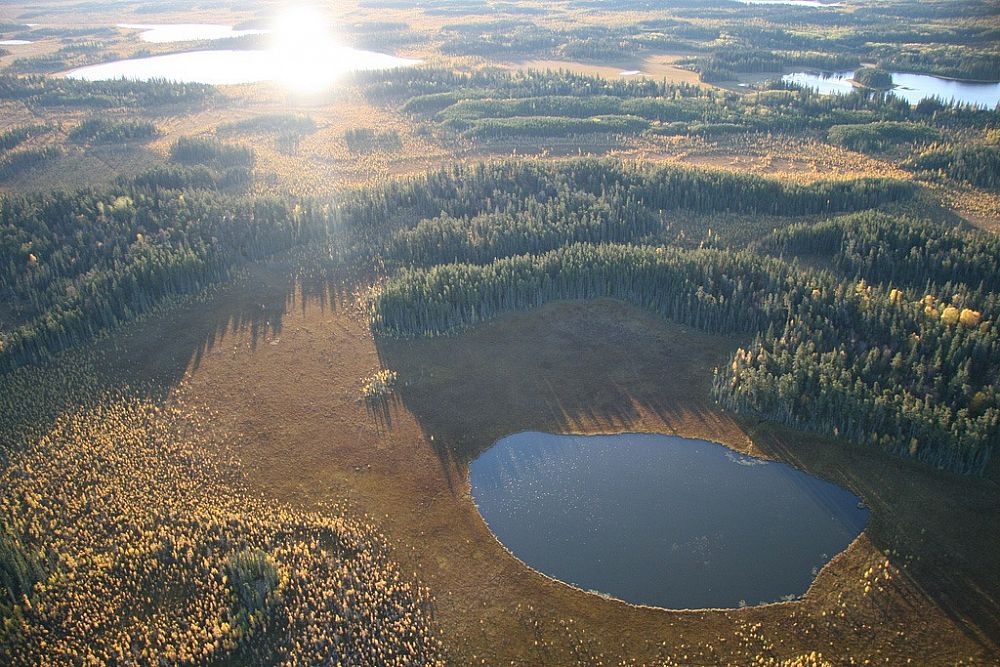Think you know Pembina?
From the oil patch to our most congested cities, the Pembina Institute is helping prepare Canada for the low-carbon economy
Maybe you know us from our work drawing attention to the environmental, climate and human costs of fossil fuel development. Maybe you know of our collaborations with oil and gas companies that resulted in pragmatic solutions allowing for development and job growth with less environmental harm. And perhaps you know our work on building code and climate accountability in B.C., transit development in Ontario or climate policy at the federal level.
Through it all, since our beginnings in rural Alberta following a fatal gas well explosion, the Pembina Institute has worked with industry, labour, governments, Indigenous peoples, communities, academia and other environmental groups to provide research, analysis and policy solutions that protect Canadians. We find that bringing all the players to the table and working together — not fighting each other — results in adoptable, achievable solutions. Given the complexity of the climate change problem, we’re committed to overcoming polarization and collaborating to protect Canadians across all sectors of our economy. Keep reading to find out how well you know Pembina.
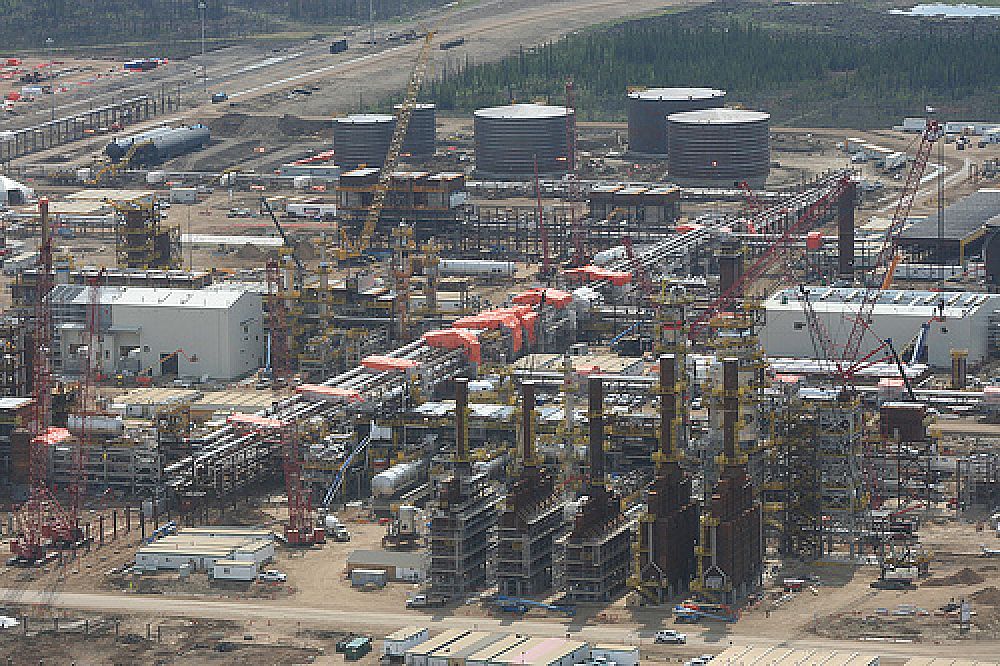
ON OIL AND GAS
Did you know the Pembina Institute mapped out the path to carbon-neutral oilsands through efficiencies, technologies like carbon capture and storage, and investments in climate offsets … as early as 2006? In 2019, CNRL and MEG Energy, two major Canadian oilsands producers, announced their intention to achieve zero-emission oilsands.
Did you know the Pembina Institute helped develop the regulatory framework for carbon capture and storage project development in Alberta? These efforts helped position Canada as a leader in CCS venture formation and are key to the deep decarbonization that will make Alberta’s oil more competitive as demand for lower-carbon energy increases.
Did you know the Pembina Institute pioneered environmental, social and governance (ESG) indicators for the oilsands through company-specific report cards on environmental performance for oilsands mining and in-situ operations? We collaborated with companies to ensure the data was accurate, and offered briefings to companies based on the final results. Today ESG indicators — think of them as an environmental credit rating — are essential reading for investors deciding if Alberta is a good place to invest. In a 21st-century decarbonizing economy, if you don’t have good environmental credit, you’re less likely to attract investment.
Did you know the Pembina Institute worked with leading oilsands companies and other environmental organizations to advance joint carbon pricing recommendations to improve oilsands climate performance? Consensus recommendations demonstrated to Canadians that the oilsands could be responsibly developed. The joint nature of the recommendations made it possible for the Government of Alberta to develop the province’s Climate Leadership Plan, which was the most significant step forward in climate action in Alberta’s history, and served to advance climate policy across the country. Agreement on industrial carbon pricing in Alberta contributed to its inclusion as part of Canada’s first climate plan, the Pan-Canadian Framework on Clean Growth and Climate Change.
Did you know the Pembina Institute contributed to the creation of the annual limit on oilsands emissions? We worked collaboratively for many years with oilsands companies — including Suncor, Cenovus and Shell — and other environmental organizations to develop joint recommendations on stronger climate regulations for the oilsands. These recommendations were provided to the Government of Alberta which eventually set an actual limit on oilsands emissions. This is a powerful accomplishment — but incomplete. The emissions cap isn’t properly enshrined in regulations and will need to decline over time in alignment with Canada’s overall emissions reductions goals.
Did you know the Pembina Institute improved oilsands company profitability and environmental performance by recommending a different cut-off grade for recovered bitumen? Pembina’s request for review of oilsands Directive 82 was reaffirmed by Shell at its Albian Mine, where the company found that reducing the lowest grade recovered bitumen by five per cent resulted in an eight per cent reduction in greenhouse gases and an 18 per cent reduction in fluid fine tailings. This pilot work proved that keeping low-grade bitumen in the ground has both environmental and economic benefits. The Canadian Association of Petroleum Producers adopted Pembina’s request for review as an example of a rare environmental, social and economic win-win-win for the oilsands.
Did you know the Pembina Institute spotlighted the need for more study on the freshwater and health impacts of fracking in British Columbia? Our research on risks to water and public health from fracking natural gas in B.C. was cited in the province’s panel report on hydraulic fracturing.
Did you know the Pembina Institute first published “When the Oilpatch Comes to Your Backyard” in 2001 to help landowners navigate their relationship with companies when oil and gas wells are abandoned? This popular publication was updated in 2004 and again in 2016. Given the growing number of inactive and orphaned wells, we released a new supplemental primer with support from the Alberta Real Estate Foundation in October 2019.
ON CONSERVATION
Did you know the Pembina Institute helped create the world’s largest protected boreal forest? Pembina was one of the first organizations to advocate for conservation areas to protect wildlife in areas impacted by oilsands development.We worked with industry and Indigenous organizations as part of the Cumulative Environmental Management Association to make recommendations that were included in the Lower Athabasca Regional Plan, which led to the designation of 13,600 square kilometres of protected conservation lands. When added to existing protected areas, this resulted in the world’s largest protected boreal forest. The boreal forest is a significant carbon sink and home to wildlife listed as threatened under Canada’s Species at Risk Act.
Did you know conservation offsets — a mechanism requiring companies to compensate for harms to ecosystems through additional mitigation efforts — were first proposed to offset oilsands impacts by the Pembina Institute in 2008? Pembina was a founding member of the Alberta Association for Conservation Offsets; member companies included Shell, Conoco Nexen and Teck. In the seminal Catching Up report, we described the case for, and potential use of, conservation offsets in the oilsands. In its 2019 platform, Alberta’s United Conservative Party promised to “encourage and increase the use of development credits and conservation offsets in provincial development policy” (p. 86).
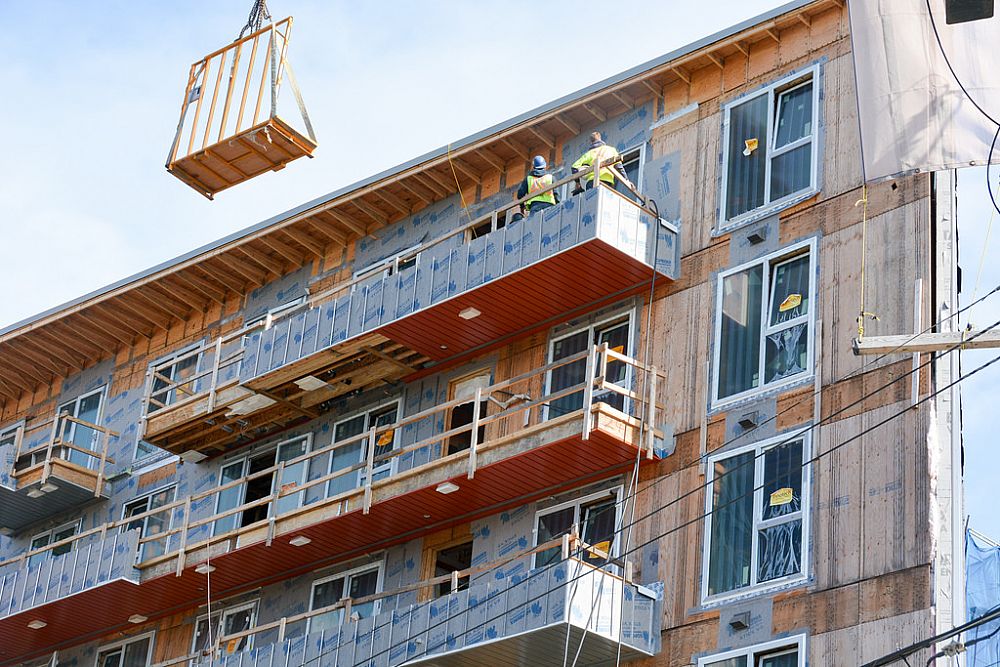
ON BUILDINGS
Did you know the Pembina Institute helped drive the creation and uptake of B.C.’s Energy Step Code, which serves as a blueprint for improving energy efficiency for the rest of Canada? Pembina conducted research and then worked with industry, trades, professionals, utilities, governments and other NGOs to find agreement on how to include energy efficiency in the building code in British Columbia. In 2017, Pembina co-founded the Three for All coalition to support municipal implementation of the Step Code after its introduction. Many of our recommendations on new buildings are reflected in B.C. and Canadian climate plans.

ON CLIMATE POLICY
Did you know Canada’s first national climate plan contains numerous recommendations made by the Pembina Institute? The Pan-Canadian Framework on Clean Growth and Climate Change includes such Pembina recommendations as a national price on carbon pollution, phase out of coal-fired electricity generation, support for renewable energy development in remote communities, methane regulations, zero-emission vehicle targets and the introduction of a clean fuel standard.
Did you know the Pembina Institute contributed to the strongest climate accountability legislation in North America? Together with several environmental organizations, Pembina put forward recommendations for accountability mechanisms to the provincial government in British Columbia, which were then included in the CleanBC plan, and enshrined in legislation. British Columbia’s Climate Change Accountability Act provides transparency on B.C.’s progress toward climate goals, regardless of the government in power. We are now advocating to see similar accountability mechanisms included at the federal level.
Did you know the Pembina Institute helped modernize Canada’s environmental laws? Pembina worked collectively within a caucus of environmental NGOs leading the effort to reform the National Energy Board. When legislation was tabled, Pembina appeared as an expert witness at both the House and Senate committees studying the bill. Passed in 2019, the Canadian Energy Regulator Act (CERA) and the Impact Assessment Act (IAA) included a number of recommendations made by Pembina, such as a commitment to meaningful public participation and the assessment of climate impacts for all major energy infrastructure projects.
Did you know the Pembina Institute is playing a critical role working with industry and government on creating and implementing the Clean Fuel Standard? As a big country, with long drives to sports competitions, to visit family and move goods from one province to another, it’s essential we tackle emissions from transportation. In 2016, during consultations on Canada’s national climate plan, we recommended that the federal government adopt a low-carbon fuel standard on transportation. Since the Clean Fuel Standard was announced as part of the Pan-Canadian Framework, we have worked closely with government, industry, and civil society stakeholders to ensure the policy is implemented in an environmentally and economically robust manner. The Clean Fuel Standard will gradually lower the carbon content of Canada’s fuel mix, helping to grow the clean fuel industry across the country. This work alone equates to taking seven million cars off the road.
Did you know the Pembina Institute informed the development of the federal industrial carbon pricing system to level the playing field for renewable energy? Pembina co-operated with health groups and renewable energy associations, and provided a consistent voice at consultations, to ensure federal output-based pricing system regulations include a declining standard for new natural gas plants that goes to zero in 2030. This regulation is essential to create a level playing field for renewable energy. Pembina’s recent analysis of carbon pricing systems for large industrial emitters found that of the four provinces that designed their own heavy emitter carbon pricing system, only British Columbia’s meets the minimum requirements set by the federal government. (Alberta, Ontario and New Brunswick do not.)
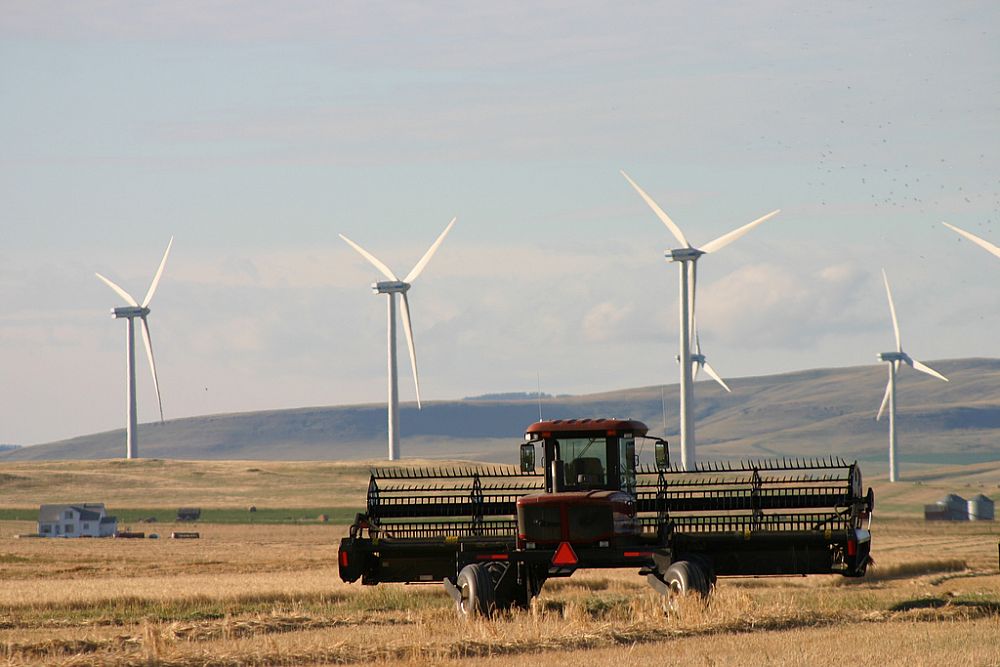
ON CLEAN ENERGY
Did you know the Pembina Institute’s new research shows that even in Alberta, where natural gas is at historic low prices, new clean energy portfolios can provide electricity for consumers at equal service and lower costs than new gas plants? Our economic analysis showed that clean energy portfolios — which include solar, wind, battery storage, energy efficiency and demand flexibility — provide the same services as new gas plants even in peak demand scenarios. This is a game-changer for provinces phasing out coal or looking to meet increased energy demands.
Did you know the Pembina Institute showcases Albertans driving the 21st-century New Energy Economy? Projects by Albertans that leverage low-carbon opportunities are featured in an interactive website that brings together clean energy actors and provides information to help new players begin their own sustainable energy ventures.

ON ENGAGING BUSINESS
Did you know that a coalition of businesses, launched by the Pembina Institute, representing more than $4.3 billion in revenue and over 13,000 jobs are standing up for climate action and a clean economy? Too often, environment and economy are positioned in public debate as being in opposition, and the voices of business leaders are drowned out by big industry opposing climate action. By bringing together leading companies like the Insurance Bureau of Canada, Arc’teryx, Innergex and Vancity to form a broad coalition of corporate climate leaders, the business voice that supports strong climate action is elevated and amplified.
Did you know the Pembina Institute launched the Business Renewables Centre Canada, which helps businesses source renewable energy directly from developers? BRC-Canada creates tools that help first-time buyers make informed procurement decisions and complete deals faster, more easily, and more cost-effectively. With major renewable energy development announcements stacking up, and with Starbucks, RBC, IBM and dozens of other members having joined the BRC-Canada ranks, the turning point is within reach.
Did you know the Pembina Institute is working to make our cities more manageable and less stressful by modernizing urban freight operations? Cleaner air, calmer streets and your packages delivered on time? Yes, please! Founding partners in our Urban Delivery Solutions Initiative include Canada Post, Purolator and UPS. Expect good news in the coming year as we bring together municipal, provincial and federal leaders for a national forum to accelerate change on urban freight.
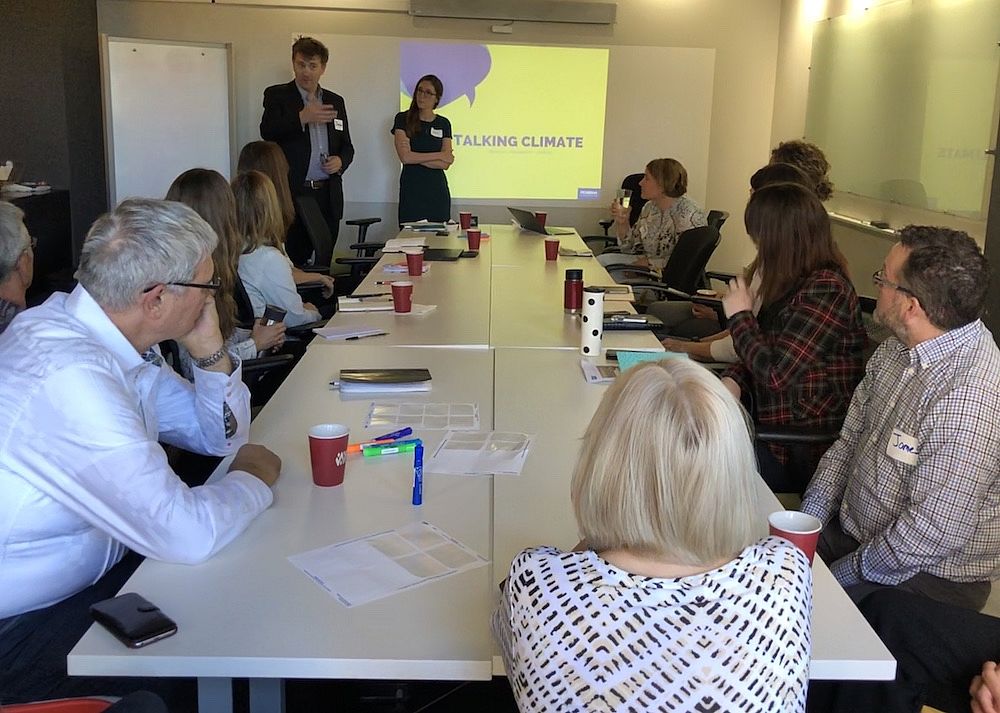
ON TACKLING POLARIZATION
Did you know the Pembina Institute undertook a ground-breaking citizen social science experiment that brought together a wide range of Albertans to tackle polarization? As an Alberta-based organization, we know progress on diversifying our energy supply hinges on addressing deepening polarization. Our Alberta Narratives Project — which brought together oilsands workers, ranchers, teachers, business leaders, youth, new Canadians, policy makers, faith leaders and many more Albertans to find common ground — is broadening in scope. It couldn’t come at a better time as the forces that seek to divide Canadians get louder, just as we need to work together to address the incredibly complex problem of diversifying and decarbonizing our energy supply.
A pragmatic path to prosperity
 For decades we have worked with industry, businesses, communities, governments, academia and others to improve environmental outcomes and tackle greenhouse gas emissions. Unfortunately, those seeking to preserve “business as usual” for the 20th-century fossil fuel industry are actively polarizing Canadians just as we desperately need to work together to solve the incredibly complex and increasingly urgent energy and climate issues that threaten to tear our nation apart. As Canada’s national energy think tank, founded in Alberta with offices in Calgary, Edmonton, Vancouver, Toronto and Ottawa, we will continue to bring industry, governments and others together to build understanding and a pragmatic path for prosperity in a 21st-century low-carbon economy. We hope you’ll join us.
For decades we have worked with industry, businesses, communities, governments, academia and others to improve environmental outcomes and tackle greenhouse gas emissions. Unfortunately, those seeking to preserve “business as usual” for the 20th-century fossil fuel industry are actively polarizing Canadians just as we desperately need to work together to solve the incredibly complex and increasingly urgent energy and climate issues that threaten to tear our nation apart. As Canada’s national energy think tank, founded in Alberta with offices in Calgary, Edmonton, Vancouver, Toronto and Ottawa, we will continue to bring industry, governments and others together to build understanding and a pragmatic path for prosperity in a 21st-century low-carbon economy. We hope you’ll join us.
